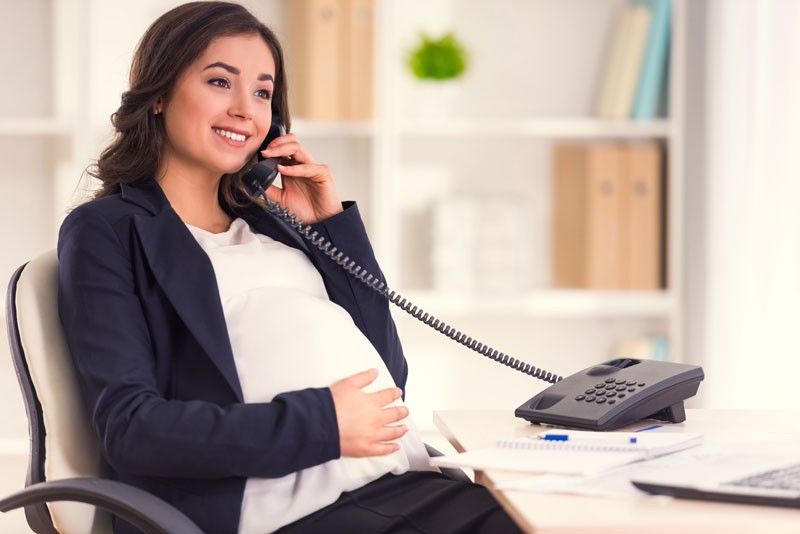Healthy pregnancy after 35 is possible — experts

MANILA, Philippines — More and more women are now opting to have babies in their mid-30s. There are apprehensions due to perceived declining fertility, health risks, and fears of birth defects. But even celebrities like Janet Jackson and the Duchess of Sussex Meghan Markle had their first babies after 35.
The Mayo Clinic enumerated the possible risks of pregnancy at 35 and above. These include gestational diabetes, high blood pressure, premature birth, low birth weight, pregnancy loss, chromosome abnormalities, and multiple pregnancy.
"The chance of having twins increases with age due to hormonal changes that could cause the release of multiple eggs at the same time. The use of assisted reproductive technologies — such as in vitro fertilization — also can play a role," it said.
Despite these risks, many women who have conceived after 35 gave birth to healthy babies.
This shows that pregnancy is possible at this age. What makes this a welcome development for most women at this age who are thinking of finally giving first-time pregnancy a shot?
Dr. Celeste Aida Gali from the Obstetrics and Gynecology Department of Makati Medical Center shared several insights as well as tips on how to have a healthy pregnancy at 35.
Undergo all precautionary tests
The OB-GYN (obstetrician-gynecologist) will be an important healthcare provider throughout the pregnancy. For it to be successful, he or she must be present from day one.
“Once you’re ready to finally embrace motherhood, see your family physician or OB-GYN for a checkup to confirm that you are healthy to conceive,” Dr. Gali said. “When you do get pregnant, show up to your pre-natal checkups, particularly in the first 12 weeks of your pregnancy, which are the most crucial weeks of a baby’s development."
Pre-natal checkups include screenings, exams, pregnancy and childbirth education, and counseling and support. These increase the chances of having a smooth pregnancy and healthy baby.
Do the First Trimester Screen
All the related literature have stressed the risks of pregnancy at this age. Thus, it is important to check for risks such as Down Syndrome and major abnormalities through recommended risk assessment screenings.
MakatiMed's Obstetric Ultrasound and Maternal-Fetal Medicine section offers the One Stop Clinic for Assessment of Risk (OSCAR) known as the First Trimester Screen. This is done during the window period of 11 to 14 weeks.
The hospital started to offer this in 2012. It said that it has maintained an accuracy of 100% (international benchmark is 90%) and a false positive rate of 2% (international benchmark is 5%). Ninety-nine percent of women turn out to have low-risk.
Apart from the First Trimester Screen, pregnant women can also undergo the non-invasive prenatal testing (NIPT), which uses DNA testing to rule out chromosomal abnormalities and determine the sex of the baby. Blood is extracted starting at nine weeks onwards.
Observe a healthy lifestyle
It goes without saying that a healthy lifestyle is a must, more so, if a woman is expecting at such a delicate age.
“Maintain a well-balanced diet, stick to the recommended amount of weight you should gain while you are pregnant, exercise moderately, sleep well, stop smoking and drinking, take essential vitamins, and advise your doctor about other medications you’re taking,” Dr. Gali said.
The Mayo Clinic said that pregnant women need more folic acid, calcium, iron, vitamin D and other essential nutrients. A daily prenatal vitamin — ideally starting a few months before conception — also helps fill any gaps.
When women are more mature and ready to take on motherhood
While there are health risks, the emotional, mental and financial aspects of pregnancy at this age are more pronounced and clear.
“When a woman decides to have her first baby after 35, she is more likely to be emotionally mature as well as financially stable to take on the commitment of motherhood. Studies have also shown that women who have babies later in life are mentally sharper than younger moms," said Dr. Gali.
She added, “Again, studies reveal that babies of older parents tend to be smarter, better educated, and less prone to injury.”



















